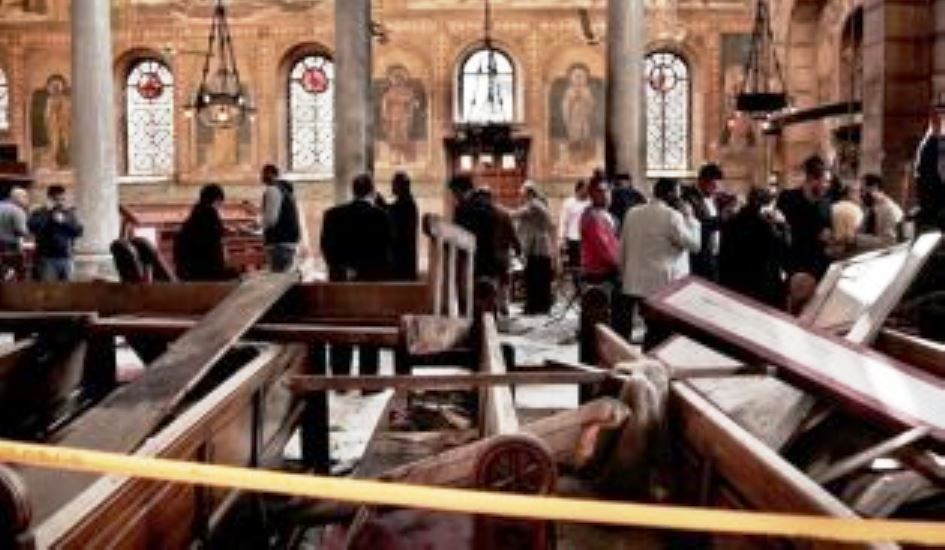Middle East and Islam specialist
Egypt’s Deadliest Church Attack
The worst attack on Egypt’s Christian minority in recent years occurred
yesterday, Sunday, December 11, 2016. St. Peter Cathedral in Cairo, packed with worshippers celebrating Sunday mass, was bombed; at least 27 churchgoers, mostly women and children, were killed and 65 severely wounded. As many of the wounded are in critical condition, the death toll is expected to rise.
As usual,
witnesses say that state security was not present and that police took an inordinate amount of time to arrive after the explosion. Preliminary investigations point to a bomb placed inside an unattended lady’s purse on one of the rear pews of the women’s section.
Mutilated bodies were strewn along the floor and pews of the cathedral. “I found bodies, many of them women, lying on the pews. It was a horrible scene,” said one witness.
“I saw a headless woman being carried away,” said Mariam Shenouda: “Everyone was in a state of shock. We were scooping up people’s flesh off the floor. There were children. What have they done to deserve this? I wish I had died with them instead of seeing these scenes.”
In death toll and severity, this attack surpasses what was formerly considered the deadliest church attack in Egypt: a New Year’s Day bombing of a church in Alexandria that killed 23 people in 2011.
Yesterday’s attack was also symbolically more significant: St. Peter’s Church is attached to and used by St. Mark’s Cathedral, the seat of Egypt’s Coptic Orthodox Christian church and home to its leader, Pope Tawadros II.
It is to President Sisi’s shame that the deadliest church attack in Egypt occurred on his watch. Yet it is also unsurprising considering how little has really changed for Egypt’s Christians since Sisi ousted Morsi and the Muslim Brotherhood in 2012. For starters, although Western and English language media do not report them, there have been several minor and unsuccessful terror attacks on churches in Egypt in recent weeks and months. Last November, a man
hurled an improvised bomb at the entrance of St. George Church in Samalout, Egypt. Had the bomb detonated—it was dismantled in time—casualties would have been high, as the church building was packed with thousands of worshippers congregating for a special holiday service.
Instances of angry Muslim mobs attacking and killing Christians on the mere rumor that they are trying to build a church, or are meeting to pray in a house church, are also on the rise. Last summer in Minya—the same place where a
70-year-old Christian woman was stripped naked, savagely beaten, spat on, and paraded in the streets to jeers, whistles, and yells of “Allahu Akbar”—rioting Muslims burned down 80 Christian homes on the rumor that Christians were trying to build a church.
[1] “No one did anything and the police took no pre-emptive or security measures in anticipation of the attacks,”
said Bishop Makarios—who is also on record saying that Christians are attacked “
every two or three days” in Minya and that the authorities are always turning a blind eye, if not actually aiding or enabling the attacks.


















